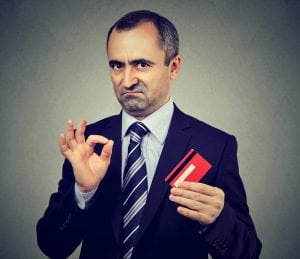 The reported cases are littered with examples of a relative or business associate (the “fraudster”) of a property owner (the “Owner”) fraudulently granting a mortgage over the Owner’s property (the “Property”). Such cases often involve the fraudster entering into a loan agreement with a lender that includes a guarantee from the Owner that is supported by the granting of a mortgage over the Property where the Owner’s signature is forged onto the mortgage that is lodged on the title to the Property.
The reported cases are littered with examples of a relative or business associate (the “fraudster”) of a property owner (the “Owner”) fraudulently granting a mortgage over the Owner’s property (the “Property”). Such cases often involve the fraudster entering into a loan agreement with a lender that includes a guarantee from the Owner that is supported by the granting of a mortgage over the Property where the Owner’s signature is forged onto the mortgage that is lodged on the title to the Property.
The first the Owner often hears of the above fraud is when they receive a letter of demand from the lender in circumstances where the fraudster has stopped making repayments in accordance with the loan. More often than not, in circumstances where the fraudster may have spent all of the loan proceeds, and has no assets that the bank can pursue to recover its loan, the lender will seek to enforce the fraudulent mortgage against the Owner. An owner in such circumstances may be able to challenge the lender’s mortgage on a number of grounds.
Indefeasibility of Title
Once a mortgage is registered on the title to a property, pursuant to section 184 of the Land Title Act 1994 (Qld) (the “Act”), the lender or mortgagee, effectively receives indefeasibility of title with respect to the property. This effectively means that the mortgagee’s interest in the property cannot be made void, defeated or cancelled by any past event.
However, the principle of indefeasibility is subject to a number of exceptions. In particular, pursuant to section 185(1A) of the Act, the mortgagee will not obtain indefeasibility of title with respect to the property if it has failed to take reasonable steps to ensure that the person who signed the mortgage is the same person as the registered proprietor of the property in question. Furthermore, pursuant to section 184(3)(b) of the Act, the mortgagee will not obtain indefeasibility of title with respect to the property if there has been any fraudulent conduct on the part of the mortgagee.
Reasonable steps
Pursuant to section 11A(2) of the Act, before a mortgage is lodged for registration, the mortgagee is required to take reasonable steps to ensure that the person who signed the mortgage is the same person who owns the property. Pursuant to section 11A(3) of the Act, a mortgagee is deemed to have taken reasonable steps pursuant to section 11A(2) of the Act if it has complied with practices included in the manual of land title practice for the verification of identification of mortgagors (the “Standard”).
Pursuant to the Standard, a mortgagee will have taken reasonable steps with respect to the identification of a mortgagor if it verifies the mortgagor’s identity, from original identification documents such as a passport and drivers licence, during a face to face interview with the mortgagor.
In the circumstances detailed in the opening two paragraphs of this article, it is unlikely that, where the Owner has not signed the mortgage and attended a face to face interview with the mortgagee, reasonable steps will have been taken to verify the mortgagor’s identity. In those circumstances, the mortgagee will not obtain indefeasible title with respect to the Property and the Owner could apply to the Court for an order pursuant to section 187 of the Act directing the Registrar of Titles to cancel the mortgage and remove it from the title to the Property.
Fraud on the part of the mortgagee
Pursuant to section 184(3)(b) of the Act, a mortgagee will not obtain indefeasibility of title with respect to a mortgaged property if there has been any fraudulent conduct on its part. In this regard, fraud means actual dishonesty by the mortgagee or its agent.
Accordingly, for section 184(3)(b) of the Act to operate, the fraud of the fraudster must somehow be attributed to the mortgagee. If the mortgagee lodges a mortgage for registration with actual knowledge that the mortgage is a forgery for example, the mortgagee will be guilty of fraud and section 184(3)(b) of the Act will operate such that the mortgagee will not obtain indefeasibility of title with respect to the mortgaged property. Fraud will also be established if the mortgagee does not have actual knowledge of the forgery, but its ignorance is due to wilful blindness, reckless indifference or a wilful shutting of the eyes for fear of learning the truth.
Compensation
If the mortgagee has taken reasonable steps to verify the identity of the mortgagor and the fraud of the fraudster cannot be attributed to the mortgagee, the mortgagor will not be entitled to an order directing the Registrar of Titles to cancel, the mortgage pursuant to section 187 of the Act.
In the above circumstances, the mortgagee would be able to enforce its mortgage, take possession of the property and sell the property to recover all sums outstanding under the loan. Pursuant to section 188 of the Act, a mortgagor who has been deprived of land because of the fraud of another person, is entitled to compensation from the State for that deprivation.
The compensation that a mortgagor in the above circumstances would be entitled to receive would generally equate to the value of the equity the mortgagor had in the property as at the date he or she was deprived of the property. A mortgagor in such circumstances has 12 years within which to make an application for compensation.
How can Marino Law help?
As the ramifications to a mortgagor with respect to the fraudulent granting of a mortgage can be very serious, legal advice should be sought immediately regarding the protection of your rights with respect to the mortgaged property.
Marino Law has extensive experience acting for lenders, borrowers and guarantors with respect to all aspects regarding residential and commercial property loan transactions. Our highly experienced lawyers regularly advise clients in the following areas:
- drafting and reviewing loan, guarantee and mortgage documents;
- applications for the removal of caveats;
- lodgement of caveats;
- applications for the recovery of or possession of land;
- applications for compensation from the State; and
- enforcement of securities.
Should you require assistance in any of the above areas, please contact one of our highly experienced lawyers.

